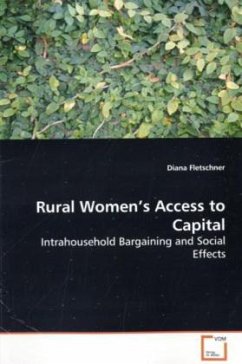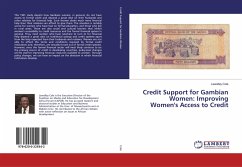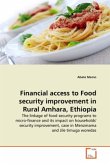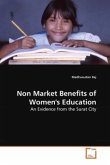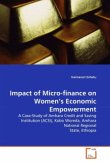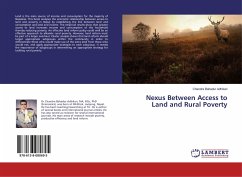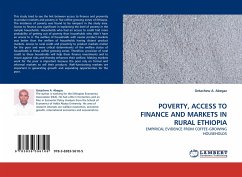Empirical studies on credit rationing in rural
markets have typically been silent on the way women s
constraints differ from men s, implicitly suggesting
that credit constraints are gender neutral or that
any gender-based differences in access to credit can
be smoothed within the family. These assumptions are
not always valid. Compared to men, rural women in
much of the developing world face legal and cultural
restrictions that further limit their access to
capital. While some may be able to overcome these
constraints with their partners assistance, spouses
can have conflicting preferences and husbands may
refuse to alleviate their wives credit constraints
despite having access to sufficient capital to do so.
In addition to these supply-side constraints, social
pressure may also limit women s engagement in
entrepreneurial activities and their demand for
capital even when they have profitable projects.
Using data from Paraguay, the analysis in this volume
explores these hypotheses theoretically and
empirically and reveals a larger set of tools
available to policymakers interested in improving
gender equity, social welfare, or broad-based growth
in rural communities.
markets have typically been silent on the way women s
constraints differ from men s, implicitly suggesting
that credit constraints are gender neutral or that
any gender-based differences in access to credit can
be smoothed within the family. These assumptions are
not always valid. Compared to men, rural women in
much of the developing world face legal and cultural
restrictions that further limit their access to
capital. While some may be able to overcome these
constraints with their partners assistance, spouses
can have conflicting preferences and husbands may
refuse to alleviate their wives credit constraints
despite having access to sufficient capital to do so.
In addition to these supply-side constraints, social
pressure may also limit women s engagement in
entrepreneurial activities and their demand for
capital even when they have profitable projects.
Using data from Paraguay, the analysis in this volume
explores these hypotheses theoretically and
empirically and reveals a larger set of tools
available to policymakers interested in improving
gender equity, social welfare, or broad-based growth
in rural communities.

